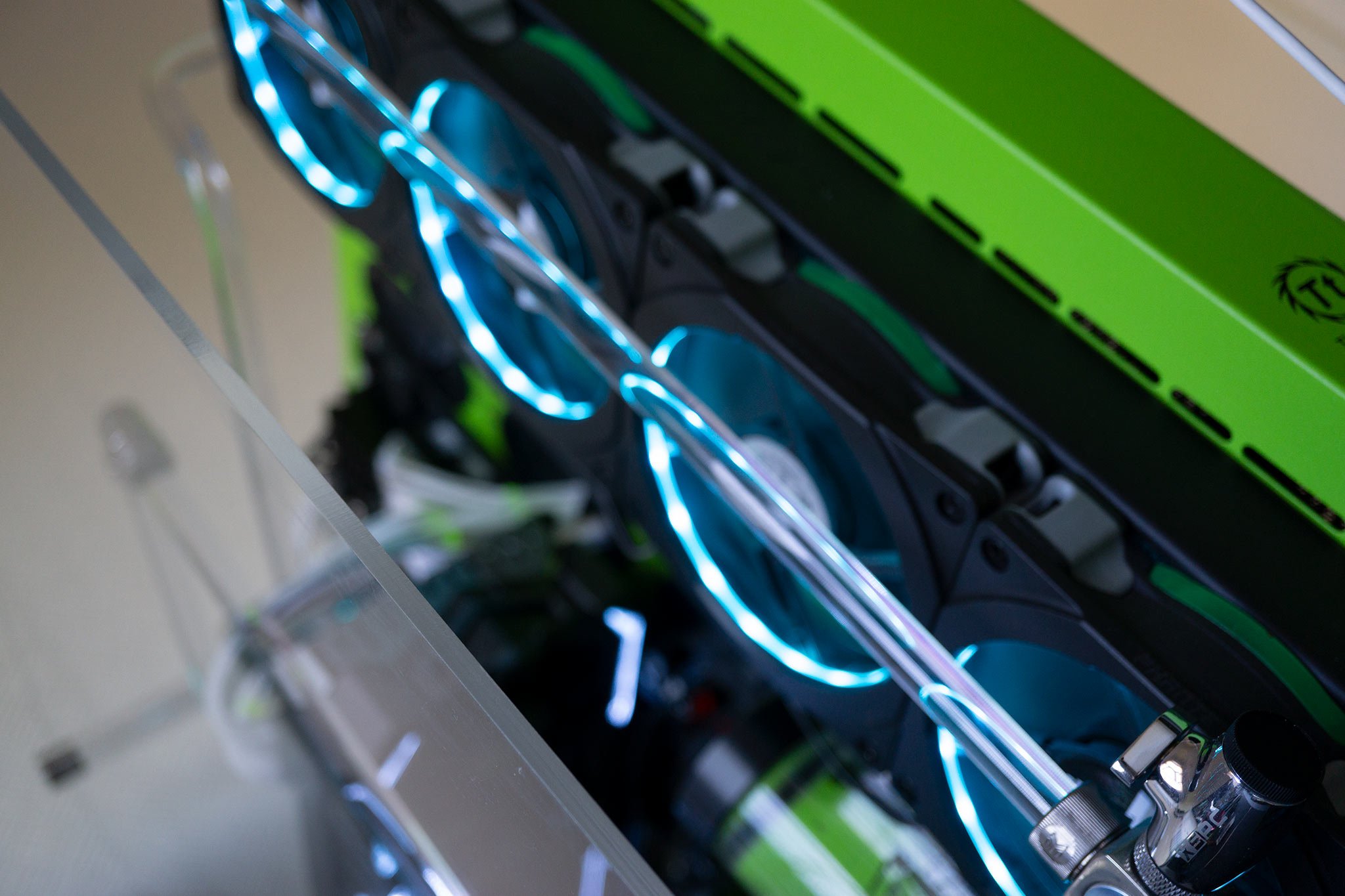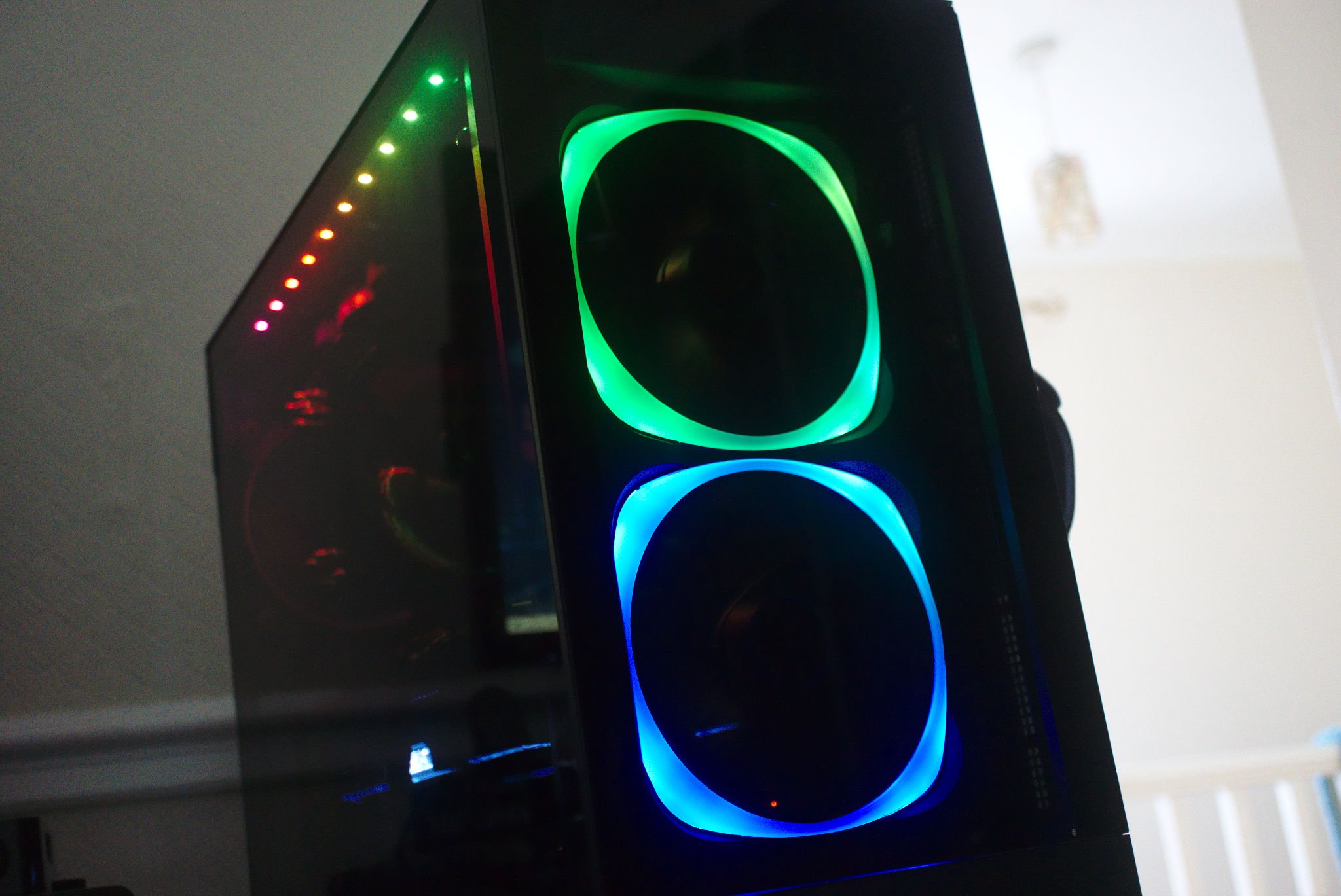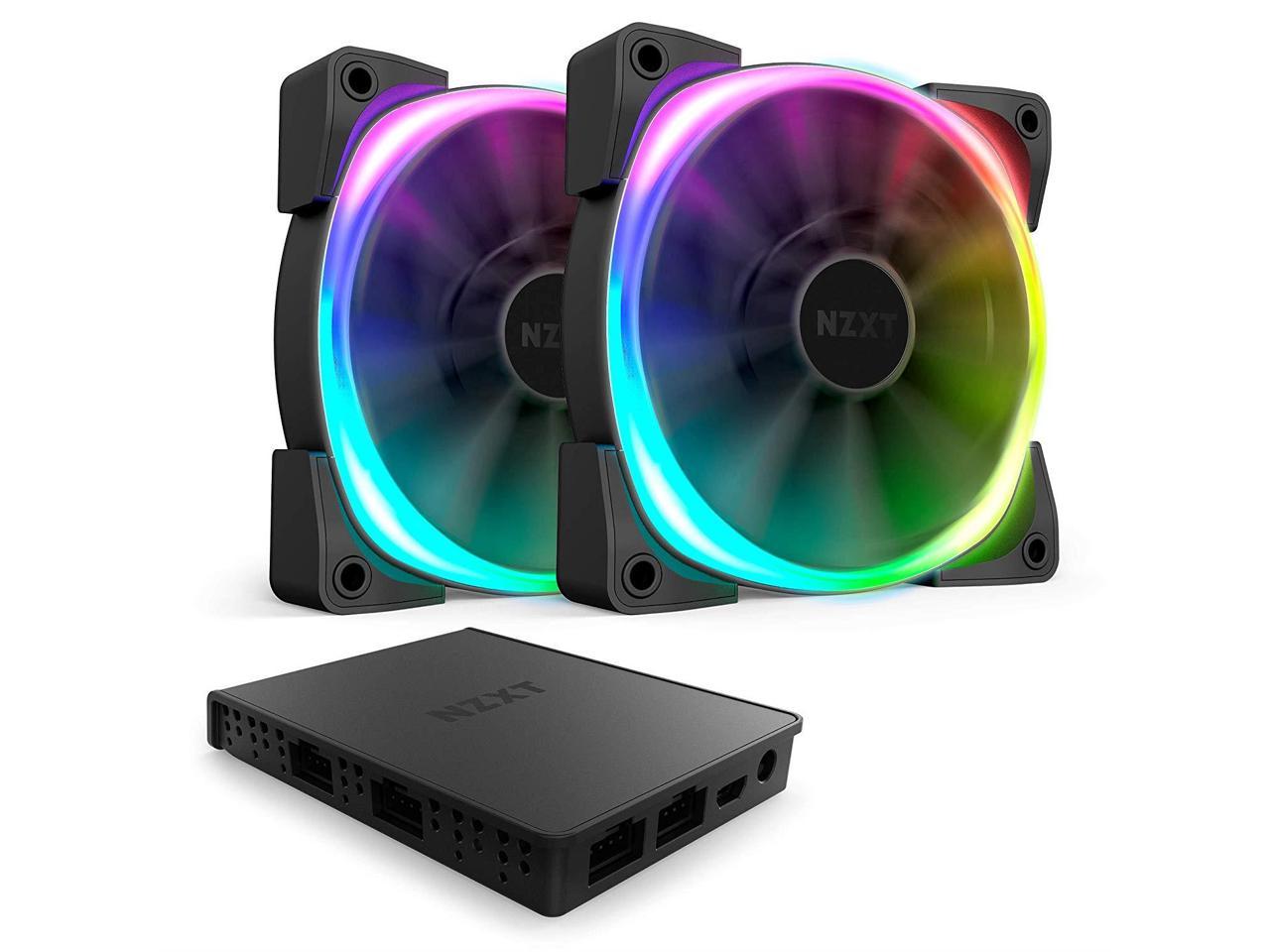Is your RGB-loaded PC an environmental nightmare?

Is your RGB-loaded PC an environmental nightmare?
The efficient power of Light Emitting Diodes
Lighting has come a long way over recent years. We've moved away from traditional incandescent and fluorescent in favor of light-emitting diodes (LED), the same technology used in displays on your phone and PC monitor. This technology has allowed RGB lighting to come into play for PC builders.
Instead of installing fragile glass tubing inside a chassis, all that's required to create a light show in the office is an RGB controller (usually included on a motherboard or using a dedicated hub) and an RGB fan or LED strip. All of these energy-efficient lights draw barely any additional power through the PSU.

The actual power draw for an RGB LED strip is minimal. We're talking less than 3W here — EKWB published a post that details exactly how much power its RGB products draw. To put that into perspective, your CPU and GPU can draw 150W and 200W, respectively. Having just four RGB LED strips installed would add a further 10W or so to your PSU, which isn't much in the grand scheme of things.
The same goes for RGB fans and hubs that control everything. The amount of additional power being added to your overall draw from the mains outlet is insignificant unless you value each watt coming from your supplier. It's perfectly fine to have as many RGB LEDs as you desire inside your PC.
Switch to a renewables-only supply tariff

One thing you could do to help mitigate any impact your RGB lighting could have on the environment, as well as the power-hungry PC as a whole, is to switch to a renewables-only tariff from an energy supplier. Some providers have these available already, allowing you to switch entirely to green energy.
For instance, my supply of electricity comes from UK-based E.ON, which uses 100% renewable energy. Even with a few PCs running through the day for work and plenty of RGB lighting to create a new major airport hub, it's peace of mind to know that I'm not having a substantial negative impact on the environment by burning more fossil fuel.

Kit out your PC
NZXT's HUE 2 and AER RGB fan kit is the perfect place to start when looking to add some color to your PC build. Rocking two 140mm fans and a central hub where you can hook up more fans or LED strips, you'll need to prepare your glow sticks!
Embrace Earth Day with more tips to make your tech more efficient!
Get the Windows Central Newsletter
All the latest news, reviews, and guides for Windows and Xbox diehards.
- Windows Central
- Introduction to our Earth Day guide
- Best eco-friendly PC accessories
- Is your RGB PC an eco nightmare?
- About those PC companies you thought were eco friendly
- Make your game console eco-friendly by disabling standby
- Rechargeable batteries vs. throwaway batteries
- Make your power-hungry gaming PC more eco
- Android Central
- Our guide to making better tech decisions in the era of climate change
- The single most eco-friendly thing you can on Earth Day is ...
- Is wireless, wired charging, or 'Fast Charging' more efficient?
- This fantastic smart plug is an Earth Day essential
- Fairphone 3 review: The most repairable phone ever
- An interview with Fairphone about making a sustainable gadget
- Best 'green' tech products and accessories
- Best eco-friendly phone accessories
- How to recycle your old phone
- What happens to a phone when you sell to a recycling company?
- 8 ways to reuse an old Android device
- How to charge a phone using solar
- iMore
- Our guide to how our technology affects the world
- All the resources that go into your favorite gadgets
- Are tech companies leading the charge for eco-friendliness?
- What is carbon neutrality?
- Best eco-friendly iPhone accessories
- Tips to easily and affordably be more eco friendly
- 7 simple ways to shrink your eco footprint
- Best smart home accessories to reduce eco impact
- About those companies you thought were eco friendly ...
- CordCutters

Rich Edmonds was formerly a Senior Editor of PC hardware at Windows Central, covering everything related to PC components and NAS. He's been involved in technology for more than a decade and knows a thing or two about the magic inside a PC chassis. You can follow him on Twitter at @RichEdmonds.
